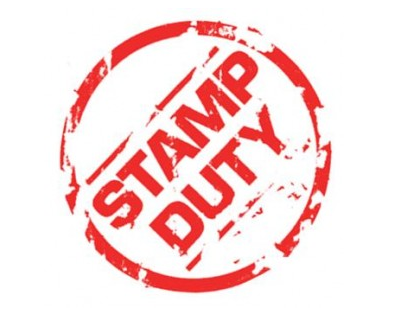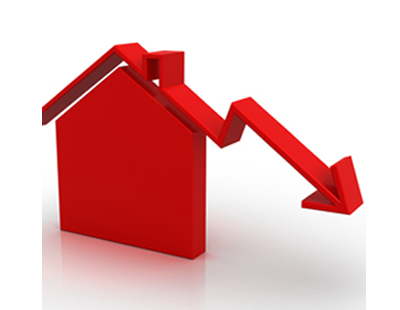
Down valuations could leave some surveyors liable to professional negligence claims, a law firm says.
Nelsons law firm says down valuations have become more common as a result of uncertainty over the future direction of the housing market, especially when the current stamp duty holiday ends.
“Establishing whether a valuation was negligent and what losses can be claimed is not a straight-forward process. It’s not simply the prevalence of the down valuations that’s an issue, but the scale of the difference, which has – in some cases – been as much as 20 or even 30 per cent” explains Sam Robinson from the the firm’s dispute resolution team.
“The question such large discrepancies raise is whether properties are being correctly valued by surveyors. If not, it may be that buyers and/or mortgage providers will find that they acquire a substantially less valuable asset than they had been led to believe. In some circumstances, the discrepancy may be such that the surveyor’s conduct is negligent, and they could be held liable for the losses sustained as a result” Robinson contends.
“The courts appreciate that valuations aren’t an exact science and, therefore, it’s to be expected that valuations will differ, sometimes considerably. A valuation will only be potentially negligent if it falls outside of the ‘margin for error’.”
Robinson says the margin for error is reached by determining what the correct nominal value of a given property was at the time of the valuation, and how much a reasonably competent professional valuation may deviate from that value.
He continues: “The breadth of the margin for error depends on the facts of the case but is normally somewhere in the region of 10 per cent, although it can be higher or lower in certain circumstances. It’s not yet been established whether the uncertainty created by the coronavirus pandemic may, in itself, widen the margin for error.”
If a surveyor is found to have been negligent, Robinson says, the starting point for any damages claimed by a purchaser will usually be the difference between the value of the property as acquired and the value assigned to it by the surveyor.
In relation to lenders where borrowers have defaulted, the damages claimed will depend on a number of factors, particularly whether, had the valuation been correct, the lender would have loaned in the first place.
“Other issues to consider are whether the surveyor has excluded their liability for negligent valuations, whether that exclusion is enforceable and whether the claimant may be deemed to have contributed to their losses by their own negligence. For example, in a lender’s case, by having provided a loan where it was unreasonable in the circumstances to do so."














.png)


.jpg)
.jpg)





%20-%20IMAGE%20Client%20Accounting%20%E2%80%93%20what%20are%20your%20options.jpg)


.png)
.png)
.png)
%20(002).png)






%20(002).jpg)



.png)




Join the conversation
Jump to latest comment and add your reply
I hope this is taken up with E-surv.
I hope it's not! This kind of discussion will have severe legal implications for us as an industry. Do you think the legal challenges will end with professionally qualified surveyors with us estate agents being seen as standard bearer for value ? This will be at our door in no time and the caveats and time pressure will increase
Agent Sensible, I hope it is passed down to Agent level.
Perhaps all the agents that are deliberately ‘over valuing’ constantly to gain personal bonuses will cease.
We can all make a mistake but we all have ‘that agent’ in our area, who tells the vendor what they want to hear, day after day!
Well not sure which part of the country is getting properties overvalued, but we are seeing the opposite in our Kingston/Surrey area with properties being undervalued by on average 10%!
I thought this was being driven by the mortgage lenders asking valuers to undervalue as a result of the uncertainty in the economic market. Has anyone else seen this in their areas?
This issue can be viewed from many angles. The majority of agents overvalue to win business and everyone knows that, but then unsuspecting buyers get caught up in what is often an emotional process agree to buy at the inflated price. In the eyes of the seller the agent has delivered. In the eyes of a professional (the surveyor) the buyer has overpaid and they down value to protect the buyer and the lender. In the instances where there are multiple buyers chasing a property, again the agent has delivered but the price isn’t market value having been pushed up by multiple bids and so the surveyor down values to protect buyer and lender. The issue where surveyors are down valuing properties because they are fearful of what may or may it happen in the future simply isn’t ethical and valuations need to be based on the current market conditions not future predictions. At the end of the day no one can predict the future so surveyors should not be liable for future price changes. This is only an issue where buyers buy with small deposits and short term mortgages. If after 2 years the value has dropped and they can’t refinance because they don’t have equity then the fault is with the lender for agreeing to give them a mortgage with a small deposit not the fault of the buyer or surveyors for not predicting what might happen! As a developer we have been enormously frustrated by down valuations this year. £30/40k drops per transaction adds up to huge sums and wipes out hard earned profit. The time to get sales through to completion this year has also been frustrating and in general once a surveyor has issued an incorrect valuation getting it turned around is like getting blood from a stone, after all they are the professionals and don’t want to admit getting it wrong. Also to put it out there, get a grumpy surveyor on a bad day and you know what’s going to happen! The phrase a property is worth what someone is prepared to pay for it simply isn’t true a property is worth at least what the last person paid for a similar property. If that comparable hasn’t completed the surveyors don’t consider it. I know agents work hard to show surveyors comparables of what they have under offer and at what price they have been agreed or even valued up but surveyors do not take the under offer stock into consideration and the big issue at the moment is that the land registry backlog means sold prices are slow to appear in the land registry and in turn the property portals that display house prices. I believe there is a lot of work that needs to be done to regulate agents who over value and/or drop fees to win business. I believe the ombudsman expects valuations to be carried out using comparables, if these were solid evidence used in the original valuation and buyers weren’t made to compete to secure properties the there would be no need for down valuations and maybe the agents valuation should be give to the surveyor? Needless to say, property valuations need to have a set format that is made clear to all parties. Surveyors and agents should use exactly the same format which must not include predicted conditions and be current. That way down valuations will be a thing of the past and agents will win instructions based on their merits rather than sellers decisions being based on price and fee and there will be no down valuations unless there are underlying issues with the property that are identified by the surveyor and can be justified.
Please login to comment